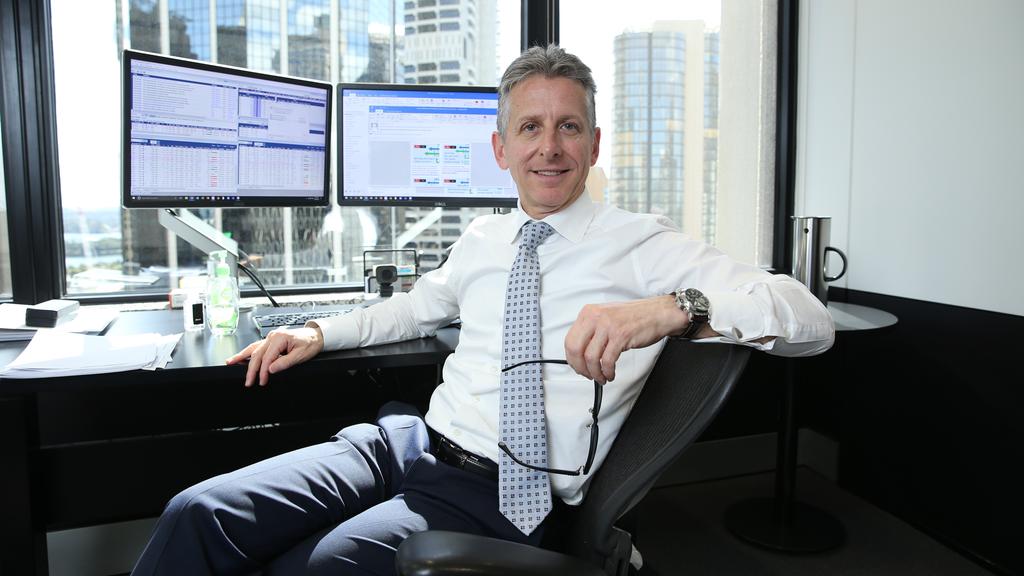Pre-Christmas property spend-up will precede an anticipated belt tightening

Darren Steinberg speaks at the PCA Property Congress.
The lag in interest rates hitting consumers will likely underpin spending in the lead-up to Christmas but key industry players are preparing for a challenging 2023 as the potential threat of a recession looms.
Speaking at the Property Council of Australia’s Property Congress on the Gold Coast this week, Brookfield managing partner, real estate Sophie Fallman said the current economic situation – rising interest rates to tackle high inflation – should not be confused with the economic environment in 2008 of the global financial crisis.
“We’re heading into either a slowdown or a downturn or a recession, varying degrees of speculation … as to how that all pans out,” Ms Fallman said.

The speakers at the PCA congress on the Gold Coast.
“But that downturn has largely been deliberately caused now by central banks because they really want to slow down growth, so as to curb inflation. So it’s quite a different environment, much less, or no systemic leverages.
“By and large, the REIT sector and the economy more broadly, is in a good shape to go into that environment.”
About 45 per cent of homeowners fixed their interest rates as the pandemic progressed to take advantage of record low rates, which Dexus chief executive Darren Steinberg said he believed could be underpinning the spending.

Dexus chief Darren Steinberg. Picture: Britta Campion
Charter Hall office chief executive Carmel Hourigan expected this would moderate over the next 12 months.
“If you think about our population, we are so exposed to variable mortgage rates,” Ms Hourigan said.
“Yes, there’s a lot of people on fixed rates but that’s going to roll off in the next 12 months.
“Then there’s probably another third of the population that have investment properties, or they’re being impacted by rent.
“So it won’t take much of a lag to actually see this space impact come through to the consumer and we’ll start to move into consumers pushing and pulling back, and then we’ll go into potential recession.”

Charter Hall Office chief executive Carmel Hourigan. Picture: Russell Millard
As a result, retail had been surprisingly resilient in 2022, said QIC Real Estate managing director Michael O’Brien, who reported “extraordinary” sales growth in shopping centre assets, particularly along the eastern seaboard.
“That’s great at an operational level, but a little bit worrying in that these rate rises don’t seem to be having the desired effect on spending,” Mr O’Brien said.
“It feels like we’re going to have a really good Christmas within sort of the retailing industry, but maybe next year … (it will be) a little bit harder.”
Ms Hourigan said that expectations of the office sector’s collapse through the early Covid-19 period turned out to be exaggerated, and 2022 proved to be a year of clarity for many organisations which were figuring out what flexibility looked like in their business.

QIC Real Estate managing director Michael O’Brien.
“It’s absolutely clear in terms of leasing evidence, and on the ground … people want quality, and they want amenity, and they want experience, and it’s all about activation,” Ms Hourigan said.
Strategies to encourage workers to come back into the office were becoming more important, especially when unemployment sat at long-term lows, Mr Steinberg said.
Although suburban offices were being shunned in favour of working from home, amenity and location was key to office appeal.
At the same time, businesses want space. The Dexus head said precommitments in its Waterfront Place project in Brisbane were running at 40 per cent five years out, with organisations seeking more space.
“Workplace ratios got ridiculously tight over the past 15 years … So under a Covid-type environment, everyone’s just looking for a little bit more space to replace ratios again, getting larger,” Mr Steinberg said.







